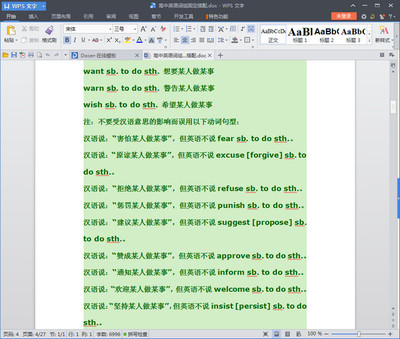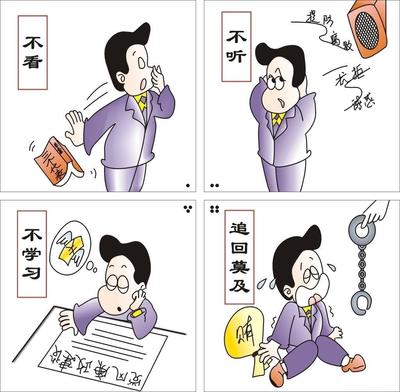
charge的用法
1.用作名词,注意以下用法:
(1)表示“收费”“费用”等,是可数名词。如:
Anadditional charge is made for heavy bags.重的行李要额外收费。
Doesmy bill include a service charge?我的账单包括服务费了吗?
有时虽然用复数形式,但并不表示明显的复数概念。如:
Hischarges are very reasonable. 他要的价钱很公道。
Whatis the charge in the hotel?
=What are thecharges in the hotel? 这旅馆收费多少?
但是,在 free ofcharge(免费)这一习语中,charge为不可数名词,其前不用冠词,本身也不用复数。如:
Weget medical care free of charge. 我们享受公费医疗。
Allgoods are delivered free of charge. 一切物品免费送货。
(2)表示“负责”“管理”“照管”等,为不可数名词,尤其用于:
have(the)charge of,
incharge (of),
in[under] one's charge,
takecharge of等惯用表达,注意其中均不带冠词。如:
Doctors havecharged of sick people. 医生负责照顾病人。
Shehas two classes in charge. 她负责两个班。
Whois in charge of this work? 谁负责这项工作?
Yourmother left you in my charge. 你的母亲让我来照管你。
Thedepartment was badly organized until she took charge of it.这个部门在她负责以前组织工作做得很差。
下面两句意思基本相同:
Heleft an assistant in charge of the shop.他留下一店员照管店铺。
Heleft the shop in an assistant's charge.他把店铺交付给一店员照料。
注意in [under] the chargeof这一搭配,它表示“在……的管理之下”。比较下面两句(有the表被动,无the表主动):
MrGreen is in charge of this facto ry.
=This factory is inthe charge of Mr Green. 这个工厂由格林先生负责。
(3)表示“控告”,是可数名词。如:
Theymade a charge against the boss. 他们控告老板。
Hewas arrested on a charge of murder. 他因谋杀罪被逮捕。
Theywere quick to reply to the charge.反对党很快对指控做出回答。
2.用作动词,无论是表示“收(费)”“索(价)”还是“控告”等,都是及物动词。用法方面注意以下几点:
(1)表示“收(费)”时,通常用介词 for引出收费的原因,并且可以带双宾语。如:
Theycharge extra for wine. 酒另收费。
Wedon’t charge anything for our service.我们不收服务费。
Hecharged me 100 dollars for this coat.这件外套他要我100美元。
(2)表示“指控”时,通常用介词with引出指控的原因。如:
Theycharged him with theft. 他们控告他偷窃。
Theywere charged with receiving stolen goods.他们被指控收受赃物。
Thepolice are going to charge him withmurder.警察要控告他杀人。
=Theyaccused him of taking bribes.他们指控他受贿。
比较下面两句:
Theycharged me with robbery.
=They chargedrobbery against me. 他们指控我抢劫。
(3)另外,还可表示“充电”,为及物动词,通常指给电池充电,但有时也可指给电器充电。如:
Heforgot to charge the battery. 他忘记给电池充电了。
Theshaver can be charged up and used when traveling.这咱剃须刀可以充电供旅行中使用。
 爱华网
爱华网



